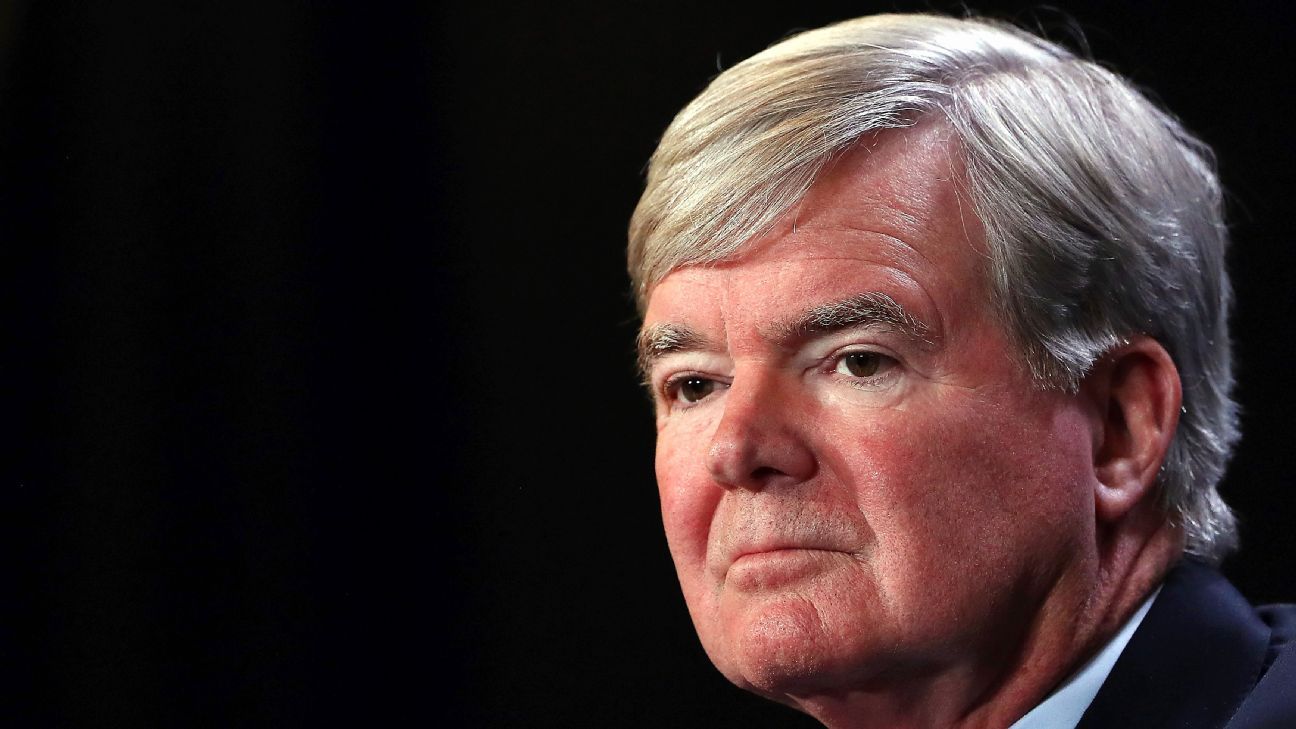The NCAA Sport Science Institute on Thursday released extended guidelines to help schools continue to navigate a return to fall sports in the midst of the coronavirus pandemic, including testing and results within 72 hours of competition in “high contact risk sports,” but NCAA president Mark Emmert conceded the virus is trending in the wrong direction.
“When we made the extremely difficult decision to cancel last spring’s championships, it was because there was simply no way to conduct them safely,” Emmert said in a prepared statement. “This document lays out the advice of health care professionals as to how to resume college sports if we can achieve an environment where COVID-19 rates are manageable. Today, sadly, the data point in the wrong direction. If there is to be college sports in the fall, we need to get a much better handle on the pandemic.”
Although testing and contact tracing infrastructure have expanded considerably, the variations in approach to reopening America for business and recreation have correlated with a considerable spike in cases in recent weeks. pic.twitter.com/TN1aE3lQ5L
— NCAA (@NCAA) July 16, 2020
The NCAA’s guidelines released Thursday also included testing strategies for all athletics activities, including preseason, regular season and postseason, along with daily self-health checks, the use of face coverings and social distancing during training, competition and outside of athletics.
“Any recommendation on a pathway toward a safe return to sport will depend on the national trajectory of COVID-19 spread,” said Brian Hainline, NCAA chief medical officer. “The idea of sport resocialization is predicated on a scenario of reduced or flattened infection rates.”
According to the release, the recommendations were developed in collaboration with the NCAA COVID-19 Advisory Panel, American Medical Society for Sports Medicine (AMSSM) COVID-19 Working Group, Autonomy-5 Medical Advisory Group, National Medical Association, and NCAA Committee on Competitive Safeguards and Medical Aspects of Sports Prevention and Performance Subcommittee. The guidance also takes into consideration recommendations from the Centers for Disease Control and Prevention.
While the NCAA made testing a major part of its most recent guidelines, the onus is still on the individual schools to provide the tests, and the document stated, “schools should plan to secure the resources necessary to both perform the tests and to manage the details related to any positive results.” If PCR testing cannot be performed within 72 hours of competition, then the competition should be postponed or canceled, or an alternative plan for testing should be developed and agreed upon.
The NCAA guidelines state that any individuals with “a high risk of exposure” should be placed in quarantine for 14 days – and that includes opposing team members following competition. In some cases, the document states, that could mean an entire team.
The NCAA also gave guidelines for travel, stating when feasible, “schools should aim to travel and play the same day to avoid overnight stays,” a scenario that’s unlikely for college football season. If overnight stays are necessary, the NCAA recommends travel protocol includes universal masking and social distancing for individuals traveling with others by private car, van, chartered bus or chartered plane. It also suggests “prepackaged meals or room service should be considered.”
The NCAA also gave guidance to help protect game officials, suggesting the use of an “electronic whistle.”
Equally as important to its guidelines on how to try to operate safely during the pandemic, the NCAA also laid out specifics to help campuses know when it’s no longer safe to proceed with college sports:
-
A lack of ability to isolate new positive cases or quarantine high contact risk cases on campus
-
Inability to perform symptomatic, surveillance and pre-competition testing when warranted
-
Campus-wide or local community test rates that are considered unsafe by local public health officials
-
Inability to perform adequate contact tracing
-
Local public health officials stating that there is an inability for the hospital infrastructure to accommodate a surge in hospitalizations related to COVID-19.
While the NCAA continues to update its guidelines and practices that schools should consider, individual campuses are still charged with developing and executing their own plans as staff and student-athletes return to workouts.
The Big 12 schools plan to implement the 72-hour testing, which a conference spokesperson said aligns with the guidance from its league medical advisors and is among the recommendations that have already been made by the Big 12 athletic directors’ football working group.
